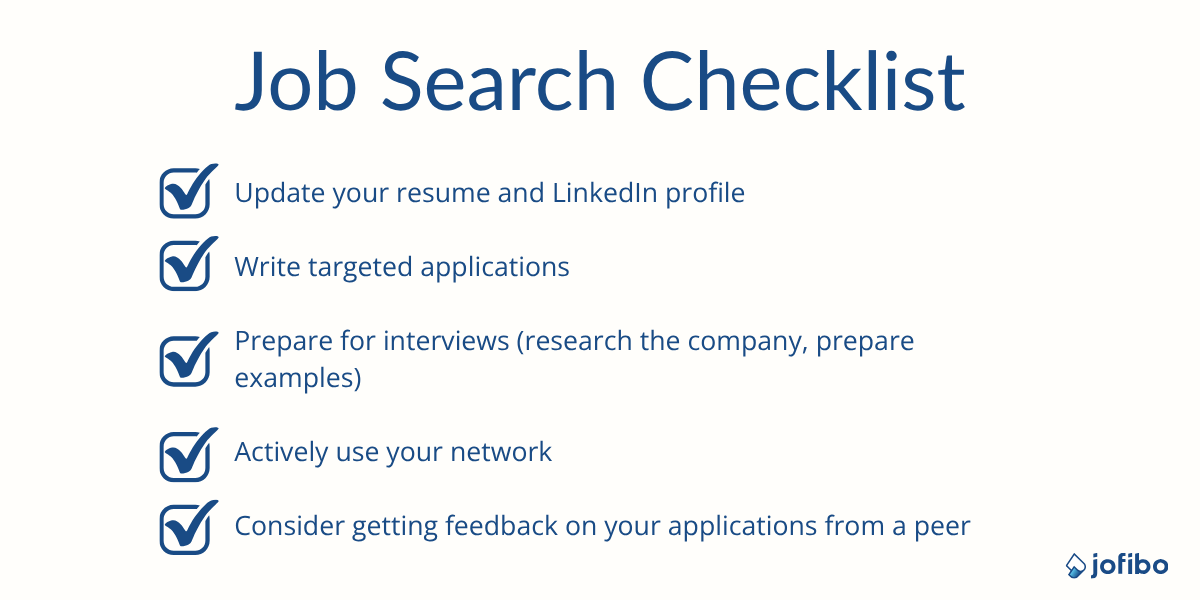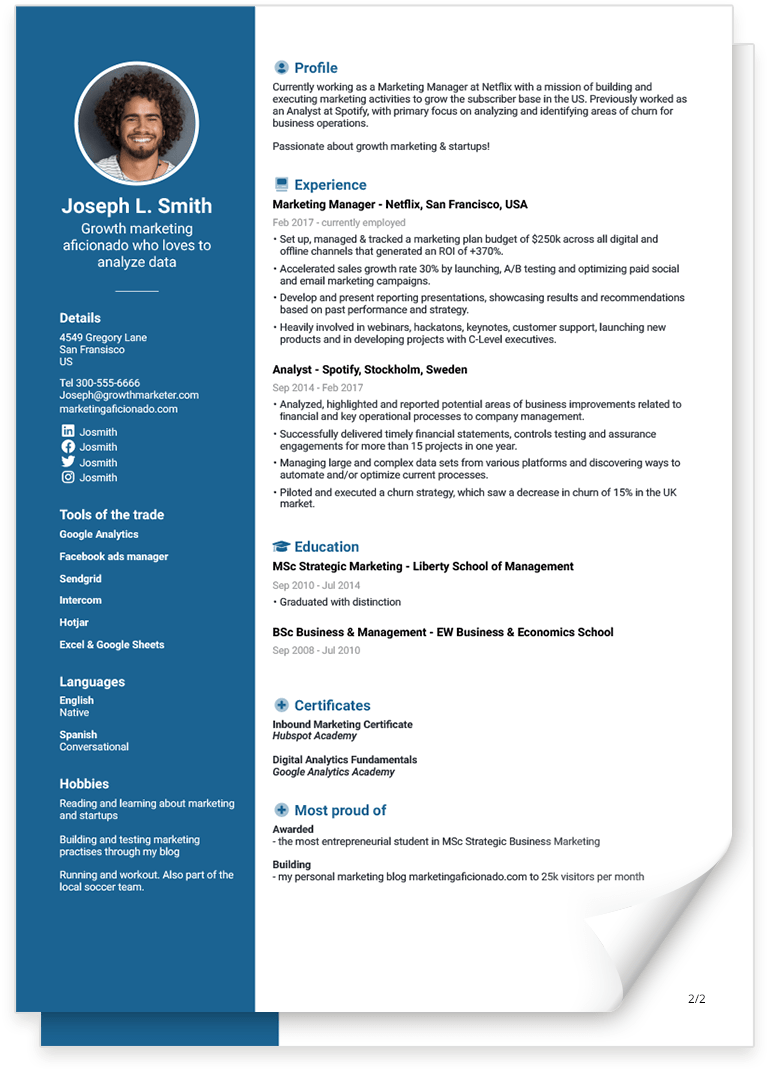How to Succeed with Your Next Career Move

Approximately 30% of the U.S. workforce changes jobs every 12 months. This equates to millions of people changing jobs annually. The average person will also change careers 5-7 times during their working life. So, if you're thinking about a career change this year, you’re far from alone.
But what should you consider before changing jobs?
Common reasons for switching jobs
There are many reasons why someone might consider leaving their current position - poor management, lack of challenges, unsatisfactory pay, or the desire for better work-life balance, just to name a few.
One of the most common reasons is poor leadership. A difficult relationship with your manager can lead to dissatisfaction - or even stress - at work. If you've tried to improve the collaboration without success, it might be a sign that it's time to move on.
As we progress through our careers, our interests and values often evolve. Many people develop a stronger need for balance between their personal and professional lives, seeking flexible hours or remote work. For others, a shift in personal values - such as prioritizing sustainability - can lead them to seek out employers who take environmental responsibility seriously.
A desire for learning and personal growth can also become more important, driving people to look for roles with more opportunities for professional development, new challenges, or continued education.
Life events like having children, dealing with illness, or relocating may also influence your priorities. These changes can make things like job security, location, or company culture more important.
No matter your reasons, today's job market offers strong opportunities to find a work life that better suits your needs and values.
Self-reflection: Are you ready for a job change?
Before jumping into a job search, take a moment to reflect. What’s motivating you to leave your current role, and what are you hoping to find in your next one?
If you've exhausted growth opportunities in your current company, it may be time to consider a larger organization with more varied tasks, higher pay, or quicker advancement. Ask yourself: how big of a change do you really want? A new industry? A different role? Or maybe just new responsibilities?
Also consider the positive aspects of your current job. Is it the colleagues, the stability, the salary, or something else that makes you stay? Knowing this will help you identify what to look for - and avoid - in your next role.
Explore internal opportunities
Before deciding to leave, consider speaking with your current manager. Ask about new responsibilities, training opportunities, or adjustments to your current role. Sometimes, the change you need can happen without changing companies.
Try small-scale experiments before making big decisions
Remember, that changing careers doesn’t always mean taking a giant leap. In fact, one of the smartest ways to explore new directions is through small, low-risk experiments. These practical steps can help you test new interests and gain valuable insight - without needing to quit your job or make irreversible decisions.
Consider enrolling in a short online course in a field you're curious about. Whether it's digital marketing, project management, or sustainable design, even a few hours of learning can help you assess your genuine interest and aptitude. Another great option is job shadowing - spend a day with someone who works in the industry you’re considering to get a first-hand look at what their daily routine involves. Or volunteer for a role in a different field, such as helping at an event, joining a nonprofit project, or assisting with a small business.
These mini-experiments are powerful tools. They offer clarity and build confidence by helping you experience the reality of a potential career path before fully committing to it. You'll also build new skills, expand your network, and gather insights that can guide your next move more strategically.
Identify your skills
A crucial step in preparing for a job change is to assess your skills. Start by mapping out what you already bring to the table: your hard and soft (interpersonal) skills as well as your experience. Then consider which of these you want to use in your next role, and what new skills you’d like to develop.
Are you dreaming of more responsibility, creativity, or working with new technologies? Tools like reflection exercises, job-matching tests, or models like SWOT and T-shape can help. Your network can also be a valuable source of input and inspiration. The better you know your strengths and goals, the easier it is to find the right fit.
Research the market with a proactive, structured approach
Once you're clear on your goals and strengths, it’s time to explore your options. Start by researching the job market and relevant industries. Look at which roles are growing and where your strengths align. However, to truly understand whether a new field or role is right for you, go beyond general research and engage directly with people who are already doing the work.
Leverage your network - many great opportunities come through connections. Set up informational interviews or informal chats with professionals in the roles or industries you’re curious about. These conversations can be incredibly valuable, offering insider insights that job ads and company websites simply can’t provide. Ask about their day-to-day responsibilities, what they enjoy most (and least) about their jobs, and what skills or qualities are most important in their field. You might gain valuable insights or even a lead on a job opening.
Not only does this help validate (or challenge) your assumptions, but it also gives you a more grounded and realistic view of the path you’re considering. You might discover opportunities you hadn’t thought of - or rule out roles that sounded appealing on paper but don’t align with your values or lifestyle.
Approach these conversations with curiosity, not pressure. Most people are happy to share their experiences, especially if you reach out respectfully and make it clear that you're exploring. Keep it casual, take notes, and reflect afterward on what resonated with you.
By structuring your research around real human experiences, you’ll make more informed decisions and expand your professional network in the process. Also consider whether upskilling is necessary. It could be a short online course or a full educational program. By combining research, networking, and skill development, you’ll build a realistic picture of your opportunities and a much stronger platform for your next career step.
Practical considerations
A job change isn’t just a professional decision, it’s a personal one too. Finances are often a key factor: Can you afford a period without income? Would you be willing to take a pay cut in exchange for better well-being or growth opportunities?
Your personal life might also be affected, especially if the new job involves longer commutes, different hours, or more responsibility. Some worry that it’s “too late” to retrain - especially after 50. But the truth is: it’s never too late. Continued education can open doors and renew your energy, both professionally and personally.
It’s also important to acknowledge the uncertainty that comes with change. By preparing carefully and taking thoughtful steps, you reduce the risks and increase the chances that your career move will be successful and sustainable.
If you’re unsure, test your choices. Take a course, volunteer, or talk to a mentor in the field you’re considering. It might give you a clearer sense of whether a change is right for you.
The job search process
When you're ready to pursue new opportunities, approach your job search in a structured way. Start by updating your resume and LinkedIn profile to reflect your current skills, experiences, and goals. Use keywords from job ads to tailor your descriptions.
Then focus on writing targeted applications that clearly show how you can contribute to the company and the role. Avoid generic templates. Every resume and cover letter should be customized.
When you're invited for a job interview, prepare thoroughly. Research the company, practice discussing your achievements, and be ready for both the most common interview questions and any case-based or skills assessments. A well-prepared candidate comes across as both capable and motivated, and that can make all the difference.
Job search checklist

When you land the job
Once you've secured a new position, your next task is to make a strong start. The first few weeks are crucial for integrating both professionally and socially.
Learn about the company culture and workflows, and approach your new colleagues with openness and curiosity. Take the initiative to introduce yourself even outside your immediate team - and participate actively in meetings and social events.
In the beginning, listen more than you talk but don’t be afraid to ask questions. It shows engagement and a willingness to learn. Early on, build a strong relationship with your manager and align expectations for your tasks and role.
By combining professional focus with relationship-building, you’ll give yourself the best foundation for thriving in your new job.
Create a professional resume and cover letter - easily
A well-structured resume and a targeted cover letter are often the key to landing your dream job. If you want to make the process easier and more manageable, try our resume builder. You can quickly create a professional resume and match it with a cover letter in the same design which helps you present a strong, cohesive impression to employers.
Try Jofibo for free and give yourself the best chances of a successful career move.

![How to Write a LinkedIn Summary [8 Examples]](https://jofibostorage.blob.core.windows.net/blog/how-to-write-a-linkedin-summary-header.png)
![Marketing Manager Resume Example & Guide [2025]](https://jofibostorage.blob.core.windows.net/blog/marketing-manager-example-top.jpg)
